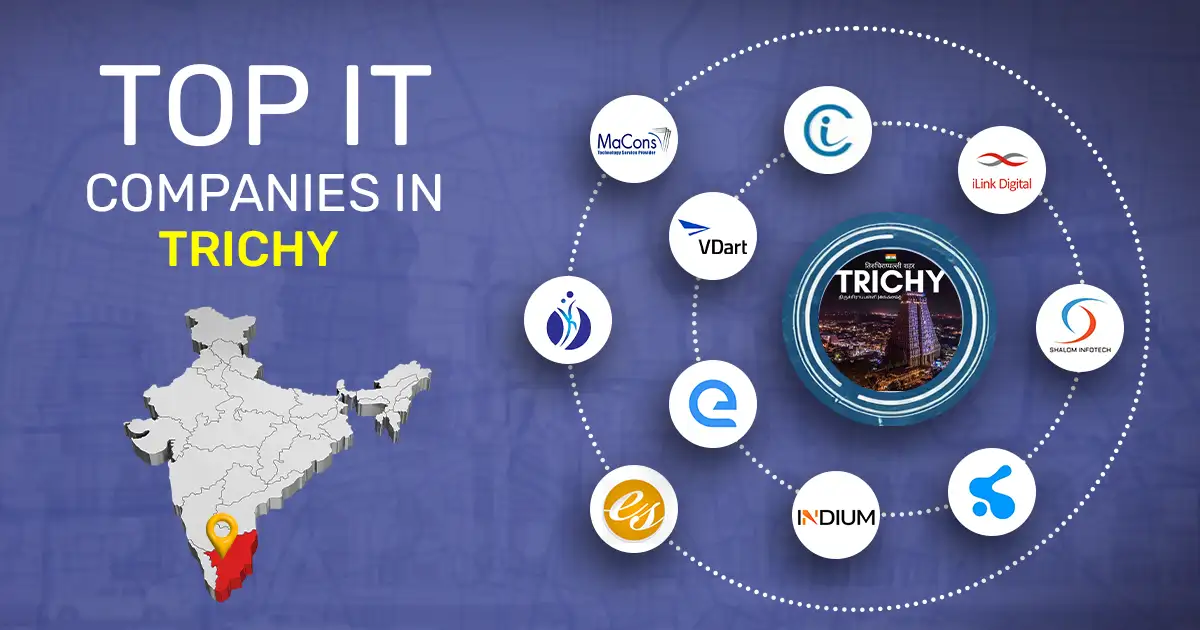
Difference Between Mainland and Free Zone Companies in the UAE
The UAE has become a global hotspot for entrepreneurs and investors seeking growth, especially Indian business founders. Its strategic location, tax benefits, and world-class connectivity make it an ideal place to start a business. For anyone planning to establish a company in the UAE, understanding the difference between Mainland and Free Zone company setups is the first step. This decision will shape the company’s legal structure, ownership rules, market access, and long-term costs.
Here’s a breakdown of the key differences:
Mainland Companies
- Can operate anywhere in the UAE.
- Trade freely within the local market across all seven emirates.
Free Zone Companies
- Operate within specific zones designated by the Free Zone Authority.
- Offer full foreign ownership.
- Benefit from simplified company setup procedures.
This blog explains many such key distinctions, including compliance and visa regulations. It also highlights the practical advantages of Free Zone vs. Mainland companies. It will help entrepreneurs make informed decisions that align with their business goals.
What is a Mainland Company in the UAE?
The local authority licenses a Mainland company in the UAE as an onshore business entity. For example, the Department of Economy and Tourism (DET) licenses Mainland companies in Dubai. This setup represents the traditional and most common form of company setup in the UAE.
Key Features of a Mainland Company
A Mainland license offers distinct features centered on market access and operational scale. Here are a few of them:
- Unrestricted Market Access: The primary benefit is the freedom to operate anywhere within the UAE. A Mainland company can trade directly with other Mainland businesses and consumers across all seven emirates without restriction.
- Government Contracts: Mainland companies are eligible to bid for and work on lucrative government contracts, which is a significant market.
- Physical Office Requirement: A Mainland company must lease physical office space and register this lease with the relevant authority (e.g., Ejari in Dubai, Tawtheeq in Abu Dhabi). The size of the office directly impacts the company’s visa quota.
- Wide Range of Activities: The DET offers a vast list of business activities, covering almost every commercial, professional, and industrial sector.
Set Up Steps for a Mainland Company
The process for a company formation in Dubai Mainland (or other emirates) generally follows these steps:
- Activity Selection: The entrepreneur selects the precise business activities from the DET’s approved list.
- Trade Name Reservation: The entrepreneur chooses a unique trade name and submits it to the DET for approval.
- Initial Approval: The entrepreneur obtains an initial approval certificate, confirming the UAE government’s acceptance of the proposed business.
- Office Lease: The company signs a tenancy contract for a physical office and registers it.
- Legal Documents: For an LLC, a Memorandum of Association (MOA) is drafted and notarized.
- License Issuance: The entrepreneur submits all documents and makes the final payment to the DET to receive the official trade license.
If you’re looking to start a Mainland business in the UAE, our team can guide you through every step of the process. Contact us today to get started and take your business to the next level!
Who is a Mainland Company Best Suited For?
This structure is ideal for:
- Retail businesses, cafes, and restaurants that require a physical storefront for the public.
- Service providers who need to serve clients directly across the UAE.
- Companies aiming to bid for contracts with the UAE government departments.
- Businesses planning for large-scale operations with a significant number of employees.
If you’re planning to set up a business in the UAE, choosing the right business setup consultant is crucial. Check out the list of the 10 best business setup consultants in Dubai to find expert guidance that will streamline your setup process and help you succeed.
What is a Free Zone Company in the UAE?
A Free Zone company operates within a designated economic area known as a Free Zone. Each zone is managed by its own independent authority, called the Free Zone Authority (FZA). Popular examples include Dubai Multi Commodities Centre (DMCC), Jebel Ali Free Zone (JAFZA), and Ajman Free Zone, making it easier for entrepreneurs to set up and run their businesses.
Key Features of a Free Zone Company
Free Zones attract foreign investment and remain the top choice for international entrepreneurs. Here’s why:
- 100% Foreign Ownership: This is the hallmark benefit. Free Zones have always offered 100% foreign ownership to entrepreneurs, without the historical need for a UAE national as a partner or sponsor.
- Tax Exemptions: Free Zone companies benefit from significant tax incentives. They can apply for the status of a “Qualifying Free Zone Person” to get a 0% corporate tax rate on their qualifying income.
- Customs Benefits: Free Zones are considered outside the UAE’s customs territory. This allows companies to import, store, and re-export goods without paying customs duties.
- Flexible Office Options: Unlike the Mainland, Free Zones offer a wide range of office solutions. These include “flexi-desks” (shared workstations), virtual offices, and full-fledged physical offices, providing lower entry costs.
Set Up Steps for a Free Zone Company
The business setup in the UAE Free Zone process is often simpler and faster than a Mainland setup. Below are the detailed steps mentioned:
- Choose a Free Zone: The entrepreneur must select a Free Zone that best suits their budget and specific business activity.
- Select a Business Package: The Free Zone Authority offers packages that typically bundle the trade license, office type (e.g., flexi-desk), and a set number of visas.
- Submit Application: The applicant submits the required documents (like passport copies and a business plan) and the trade name options to the FZA.
- License Issuance: Once approved, the FZA issues the business license, and the company can begin its operations.
If you’re planning to start your business in Dubai, setting up in one of the city’s Free Zones is an excellent choice. For instance, the Dubai Multi Commodities Centre (DMCC) offers various packages tailored to different business needs, including e-commerce, trading, and consultancy services. The process is simple, and with the help of a trusted business consultant, you can complete your setup quickly.
Learn more about how to register a Free Zone company in Dubai from this detailed blog.
Who is a Free Zone Company Best Suited For?
This structure is ideal for:
- International traders, exporters, and import/export businesses.
- E-commerce companies that warehouse and ship goods globally.
- Consultants, freelancers, and service providers who work with international clients.
- Startups and entrepreneurs seeking the lowest setup cost and 100% ownership.
Understanding the difference between the Mainland and the Free Zone in the UAE is best done with a direct comparison. The choice impacts every aspect of the business, from its legal foundation to its daily operations.
| Feature | Mainland Company | Free Zone Company |
| Ownership | Now offers 100% foreign ownership for most commercial and professional activities (since 2021 reforms). Some strategic sectors are restricted. | Standard 100% foreign ownership. This has always been the primary benefit of a Free Zone setup. |
| Market Access | Unrestricted. Can trade directly with any business or consumer across the UAE. Eligible to bid for government contracts. | Restricted. Legally, a Free Zone company can only operate within its Free Zone and outside the UAE. To sell on the Mainland, it must use a local distributor or agent. |
| Visa Quota | The number of visas is generally determined by the size (in square meters) of the leased physical office space. | The number of visas is determined by the license package purchased from the Free Zone Authority. |
| Visa Sponsorship | Visas are issued by the relevant emirate’s DET and the Ministry of Human Resources (MOHRE). The difference between Free Zone and Mainland visa processing can be notable. | Visas are issued and managed directly by the Free Zone Authority itself, which often streamlines the process. This is a key difference between the employment visas in the Mainland and the Free Zone. |
| Setup Cost | Higher. The primary costs are the mandatory office rent, DED fees, and potential legal fees. | Lower. The availability of flexi-desk packages makes the initial setup cost significantly more affordable for startups and solo entrepreneurs. |
| Tax Benefits | Subject to all UAE federal laws. This includes the 9% UAE Corporate Tax on net profits above AED 375,000. | Can apply for “Qualifying Free Zone Person” (QFZP) status to benefit from a 0% Corporate Tax rate on qualifying income. |
Which One Should an Entrepreneur Choose Between the Mainland & Free Zone?
There is no single “best” option. The right choice in the Free Zone vs Mainland debate depends entirely on the business’s specific goals. An entrepreneur should ask these questions to find the right fit:
- Who is the target market?
- If the main customers are UAE residents, local businesses, or government bodies, a Mainland license is the clear choice.
- If the customers are international (outside the UAE), a Free Zone is more efficient.
- What is the business activity?
- A retail shop, a restaurant, a construction company, or a local services firm must be on the Mainland.
- E-commerce businesses, media companies, IT consultants, or global trading firms are better suited for Free Zones.
- Does the business need a physical presence?
- If the business requires a showroom, a physical office for clients, or a large warehouse for local distribution, the Mainland is necessary.
- If the business can run from a home office or co-working space, a Free Zone flexi-desk package is ideal.
- How many visas or employees are needed?
- If the business plans to hire a large local team, the Mainland structure (tied to office size) is more scalable.
- For businesses needing only 1-3 visas, a Free Zone package is simpler and more cost-effective. Free Zone visas are linked to the Free Zone Authority, which makes processing faster.
- What is the budget for setup and compliance?
- Entrepreneurs seeking the lowest possible startup cost should choose a Free Zone.
- Entrepreneurs with sufficient capital who prioritize market access should opt for the Mainland.
Considerations for Indian Entrepreneurs
For founders from India, the difference between the Mainland and Free Zone has specific implications.
- Profit Repatriation: Both structures allow for 100% repatriation of profits and capital back to India.
- RBI Outbound Investment Norms: Indian residents must comply with the Reserve Bank of India’s (RBI) Outbound Direct Investment (ODI) regulations when investing in any UAE company, whether Mainland or Free Zone.
- Deploying Indian Workforce: The difference between Free Zone and Mainland visa processing is a factor. Both structures allow for the hiring of Indian employees, but the process and sponsor (MOHRE vs. FZA) are different.
- India-UAE CEPA Benefits: The Comprehensive Economic Partnership Agreement (CEPA) reduces tariffs, benefiting Indian exporters. A Mainland trading company can import goods from India under CEPA and distribute them directly within the UAE market. A Free Zone company can use the agreement to re-export goods to other countries.
Choosing between a Mainland and Free Zone company is a crucial decision for any entrepreneur in the UAE. A Mainland company provides full market access and is ideal for local businesses or those seeking government contracts. A Free Zone company offers easy setup, lower costs, and tax advantages, making it perfect for international trade, e-commerce, and startups.
The right choice depends on your business goals, budget, and plans. Given the legal and financial implications, it’s wise to consult a business setup expert for guidance.
Frequently Asked Questions
No, a Free Zone company cannot trade directly with the Mainland market. To sell products or services on the Mainland, the company must use a legally appointed Mainland distributor or agent, or obtain a special DET permit for service activities.




